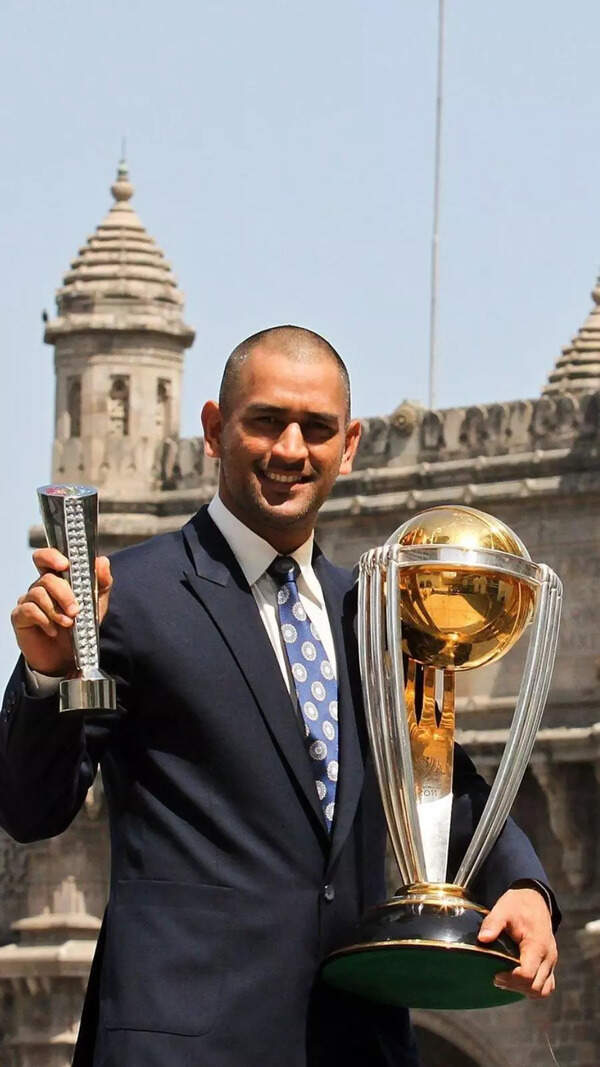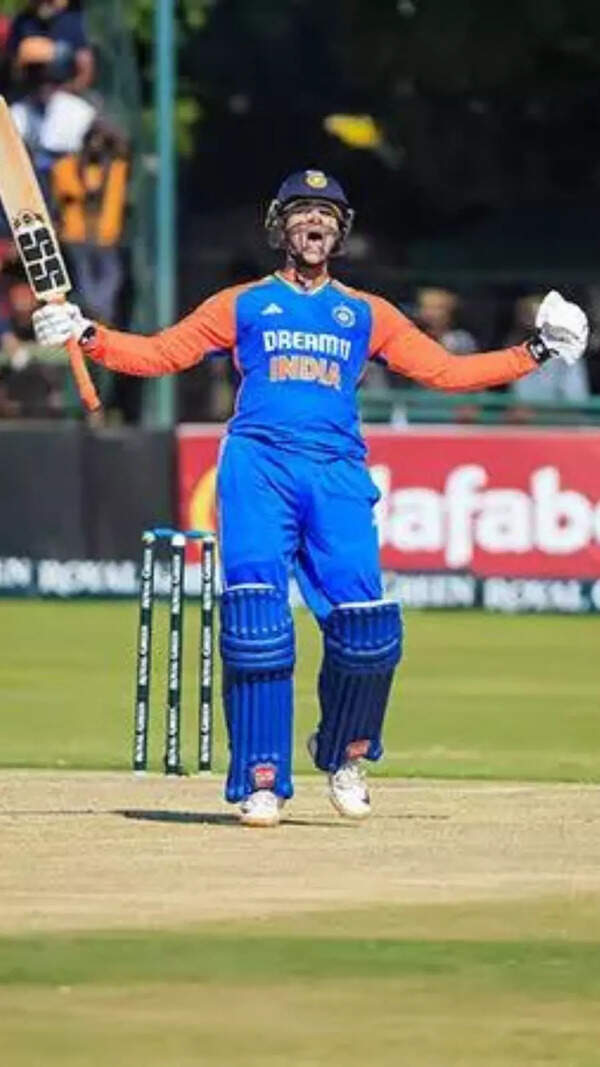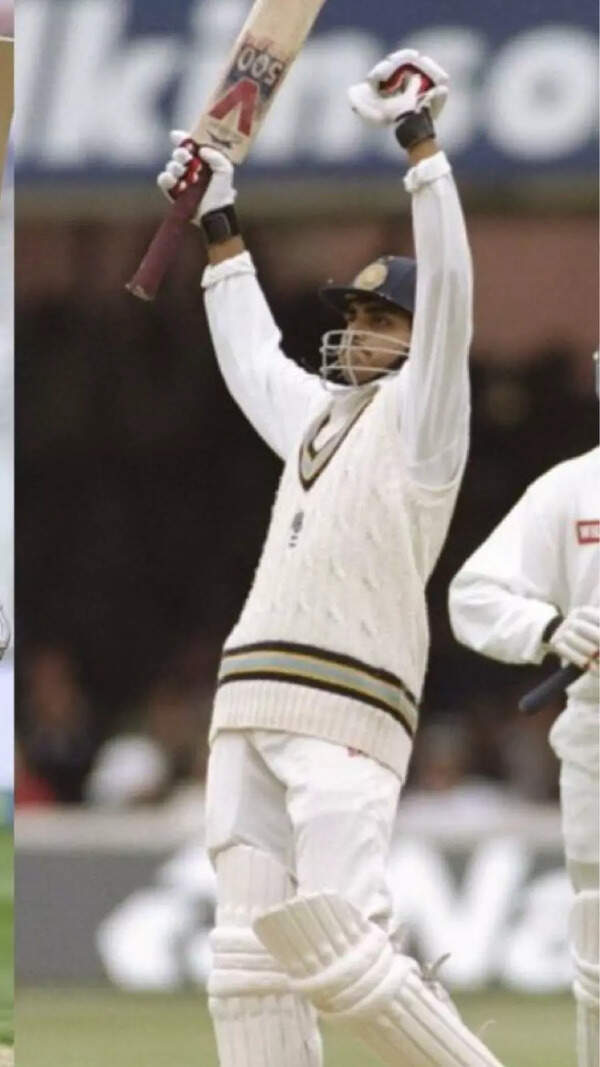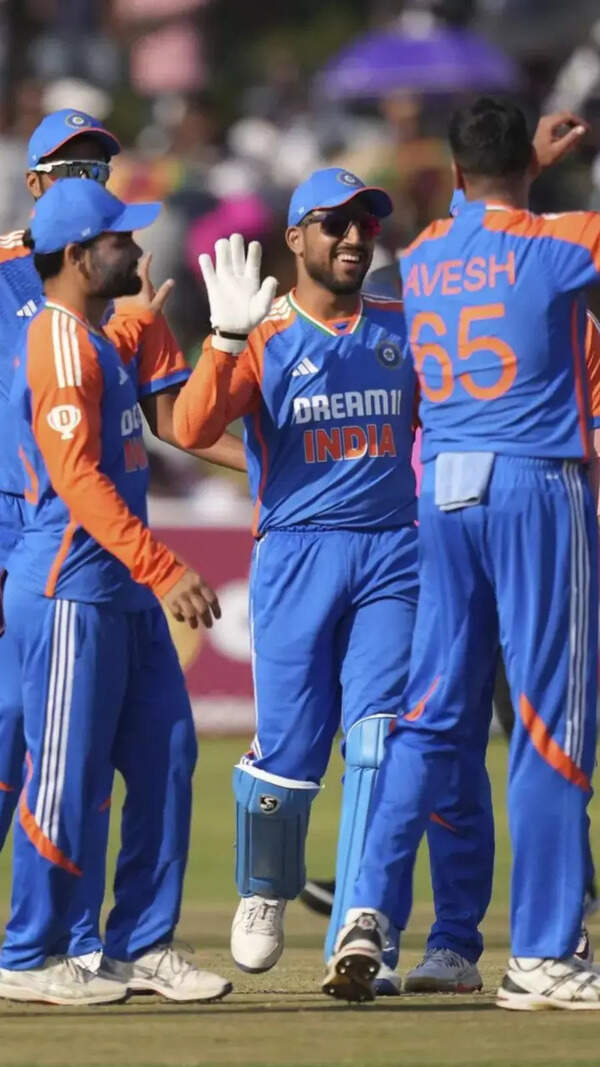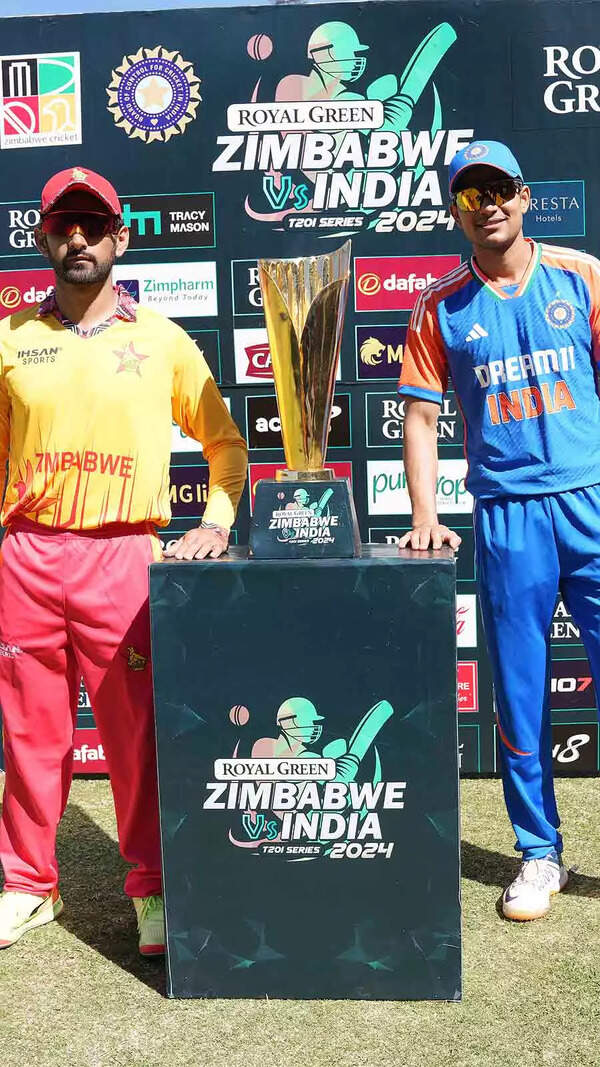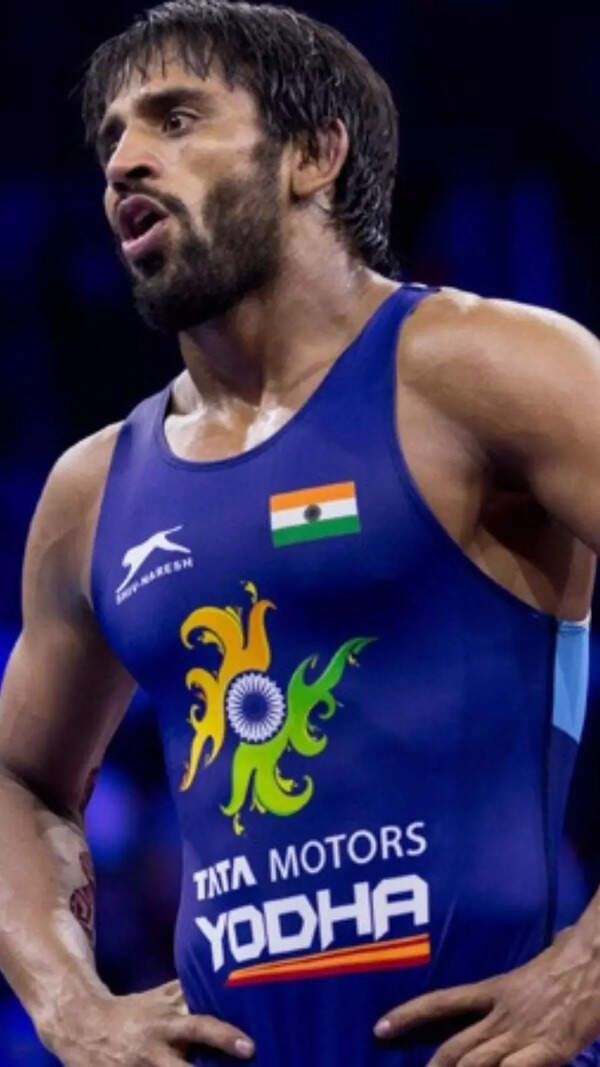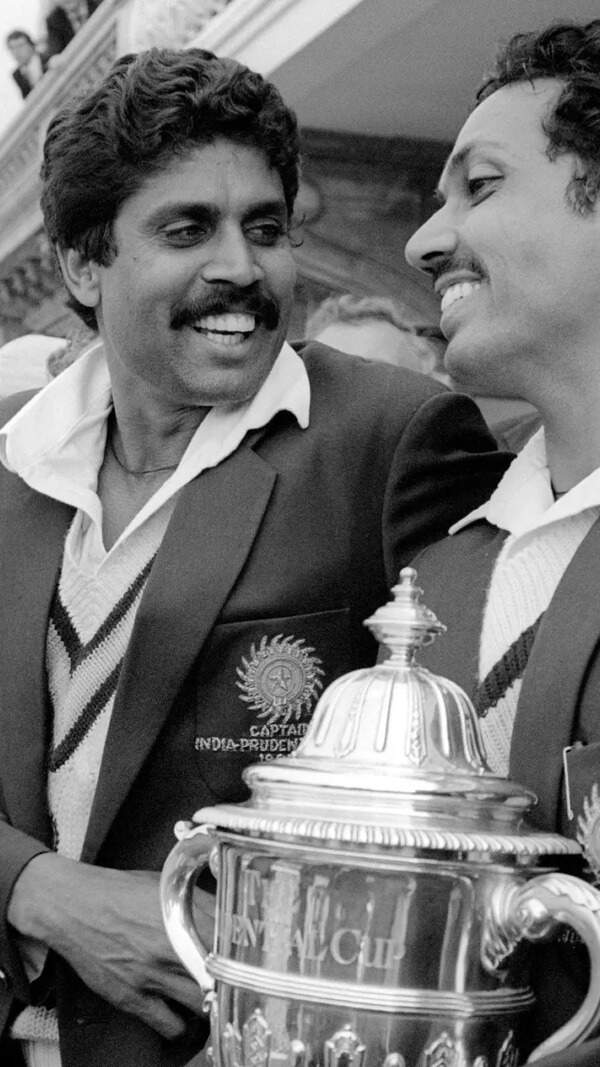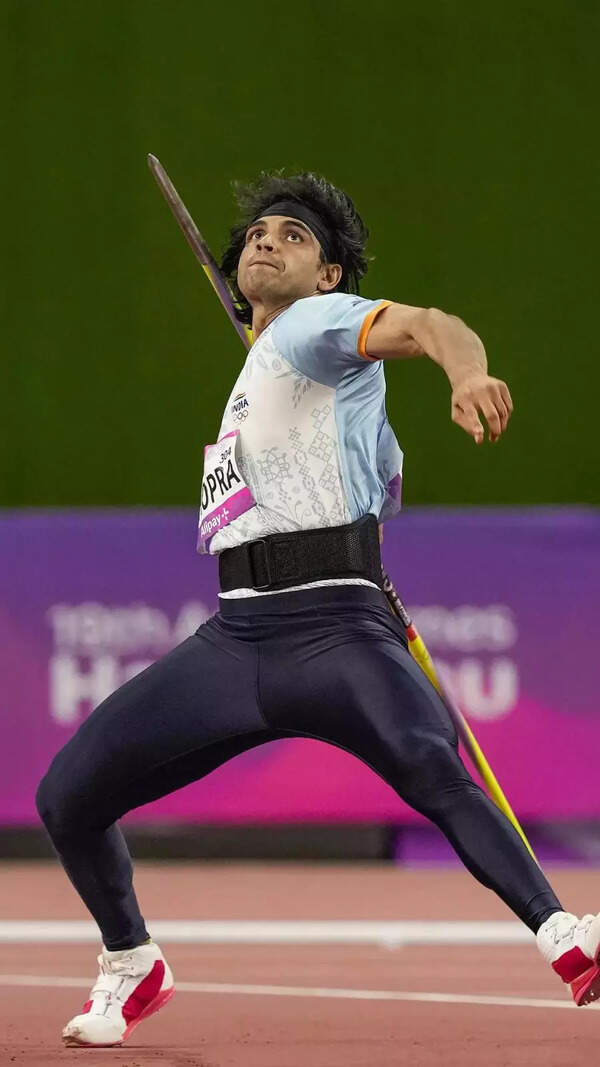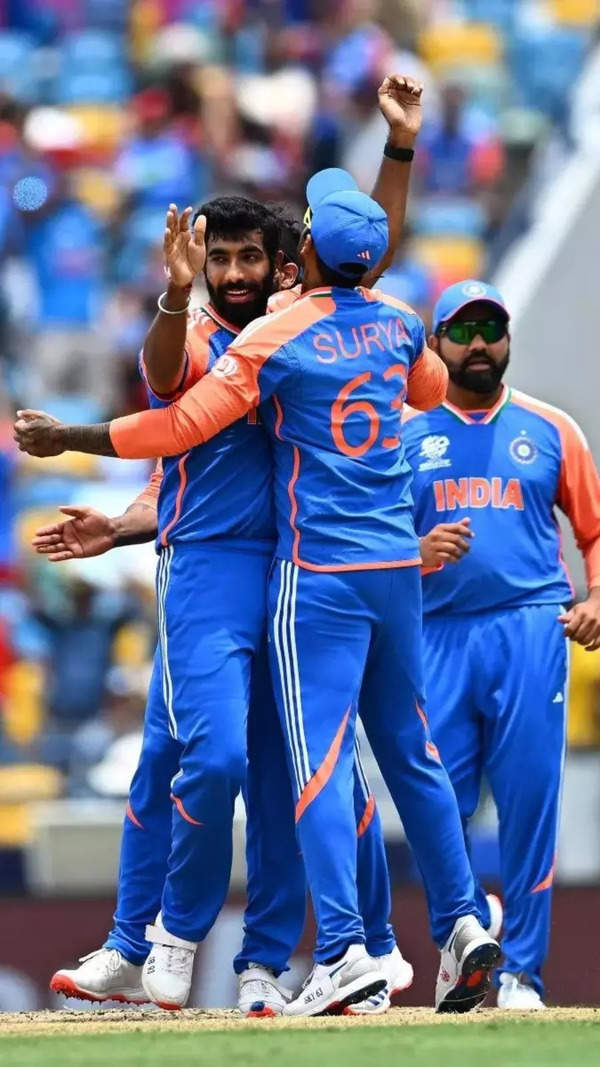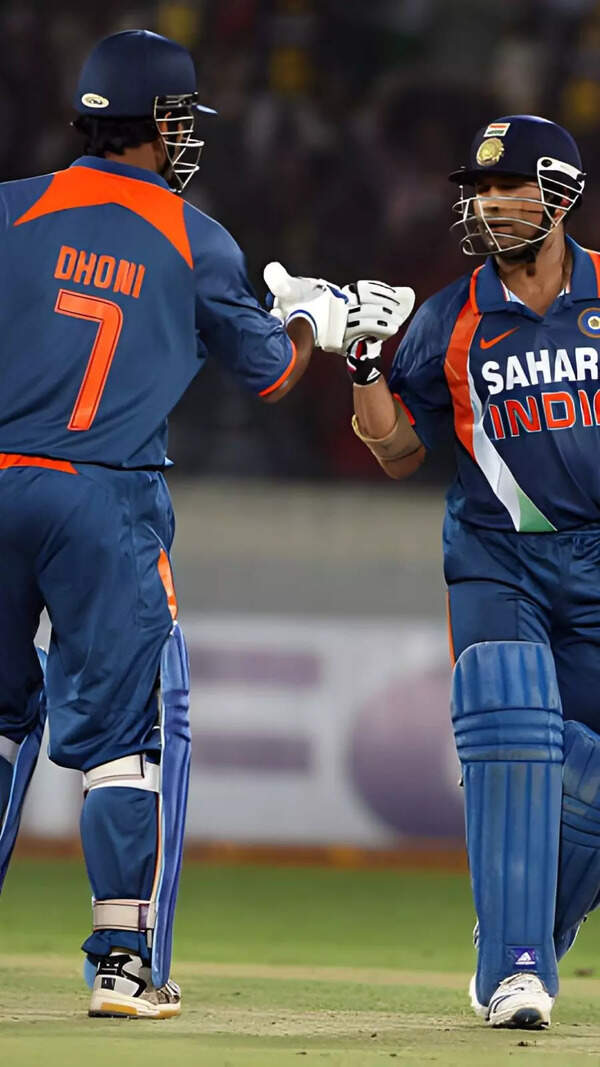- News
- Sports News
- Tennis News
- Indian players are not being prepared to be top pros: Former Portuguese Davis Cupper Seruca
Trending
Indian players are not being prepared to be top pros: Former Portuguese Davis Cupper Seruca
Marco Seruca, a former professional tennis player turned coach from Portugal, says Indian players will remain "underdogs" on the world stage because the existing ecosystem in the country doesn't prepare them for the intense competition at the highest level.

Marco Seruca with one of his wards in Chandigarh. (TOI Photo)
PUNE: Marco Seruca, a former professional tennis player turned coach from Portugal, says Indian players will remain "underdogs" on the world stage because the existing ecosystem in the country doesn't prepare them for the intense competition at the highest level.
"The system here in India is quite below par international standards. It is not designed as per contemporary system in Europe, the US or Australia," said Seruca while speaking to The Times of India over phone.
The 57-year-old moved base to India in early 2022 to help set up a high performance centre at the Chandigarh Lawn Tennis Association and has now established his own venture, MS Star tennis academy, in the state capital of Haryana and Punjab.
Seruca said the two years he had spent in India so far had given him enough insight into how the sport runs in the country.
"What is (being) done here is not on par with what is being done in small clubs, smaller academies in Italy, France, Germany, Spain, a few in Denmark.
"It is the smaller centres that produce players, because it is easy to identify all the needs (of a player) and provide the required support and service.
"India doesn't have it yet."
Seruca had an ordinary career as a player, having been ranked highest at 696 and played in two
When the covid pandemic disrupted the established order, Seruca decided it was time to explore new avenues, which led him to signing a two-year deal with the CLTA with the task of establishing an high performance centre.
"I wanted to bring to India the best programme that exists, I am a product of that," he said. "There is a massive need for that (in India).
"I have seen the (Indian) players during tournaments, I can say by the way they play how they have been coached. They are not prepared to be international players.
"They will be the underdogs, they don't have the tools. They are very good when competing in India against other Indian players, but when they start playing internationally, they realise 'oh my god, they (rivals) are much better' -- technically and tactically.
"Traditionally India has had representation (in Grand Slams). It has a million courts, but it has no depth. The No. 1 player is (ranked) in the top-100, the No. 2 is in the 400s."
Asked to elaborate his idea of a system that was on par with international standards, Seruca highlighted one of the factors that is key to a player's development.
"The difference (between the Indians and those from established tennis nations) is in the rhythm of play," he said.
"When you say rhythm, it is the speed at which you play. Technique is the same for everyone, but in the case of a well trained player, it is the speed with which he moves, he gets to the ball, he takes time away from the opponent.
"He or she can manoeuvre the ball from any side of the court and almost always dictates the play. If tactically you can't be aggressive, you try to unsettle the opponent's pattern of play, hang in till you can hurt him.
"Kids here have the game. Everything here in India is mild, tennis is not ruthless, the system is not designed for that.
"The competition is not fierce between coaches (to produce a champion). The focus (of coaches/academies) is on making money, not on making money through results.
"The focus should be on quality, not holding (on to) position, not selling unrealistic projects/dreams. The environment is simply not there.
"What I find in India is quite a sad story. Here are kids with talent working harder than pros, they do everything their coaches ask them to, but the system doesn't provide them (the required services).
"If there is an 18-year-old who is going to be good one day, but he is competing in training with 500,000 players in the world of his age. If India doesn't train him well, he has less possibility of making the top-100."
Seruca's sense of disillusionment probably stems from the experience he has had during his two-year stint at CLTA.
"CLTA has the potential to develop (top pro players), it has one of the best infrastructure in northern India, but that is not their priority," the Portuguese said.
"I left (in April this year) on my own as I felt I was not welcome anymore. Everything was going well until CLTA started to promote other services. It became less motivating for me (to continue with the high performance programme).
"They were happy for me to go. They were not worried that 22 players from CLTA, all home-grown players, left them and joined my academy. They were happy to see me out of the way."
So, what are the things that he would change to help Indian players develop into top competitors?
"First, the government spends a lot on creating better facilities. It has to ensure that kids of less financial potential have more access to them," he said.
"Secondly, the coaches' training has to be more competitive. Today, 95 percent of the top players come from South America, Australia, Europe, USA.
"Pay more to coaches so that they can avail expensive courses to make themselves more aware and be on par with the international standards.
"You have to somehow create conditions so that guys from abroad like me can come and add value. A hundred people like me will make the environment more conducive.
"India can be a bit more receptive to coaches from abroad."
"The system here in India is quite below par international standards. It is not designed as per contemporary system in Europe, the US or Australia," said Seruca while speaking to The Times of India over phone.
The 57-year-old moved base to India in early 2022 to help set up a high performance centre at the Chandigarh Lawn Tennis Association and has now established his own venture, MS Star tennis academy, in the state capital of Haryana and Punjab.
Seruca said the two years he had spent in India so far had given him enough insight into how the sport runs in the country.
"I investigated the realities, I know the market and the system now," he said.
"What is (being) done here is not on par with what is being done in small clubs, smaller academies in Italy, France, Germany, Spain, a few in Denmark.
"It is the smaller centres that produce players, because it is easy to identify all the needs (of a player) and provide the required support and service.
"India doesn't have it yet."
Seruca had an ordinary career as a player, having been ranked highest at 696 and played in two
Davis Cup ties -- losing both. Since hanging up his boots, he coached players on the ITF, ATP and WTA circuits before taking up the position as the head of a high performance programme in a club in Lisbon.
When the covid pandemic disrupted the established order, Seruca decided it was time to explore new avenues, which led him to signing a two-year deal with the CLTA with the task of establishing an high performance centre.
"I wanted to bring to India the best programme that exists, I am a product of that," he said. "There is a massive need for that (in India).
"I have seen the (Indian) players during tournaments, I can say by the way they play how they have been coached. They are not prepared to be international players.
"They will be the underdogs, they don't have the tools. They are very good when competing in India against other Indian players, but when they start playing internationally, they realise 'oh my god, they (rivals) are much better' -- technically and tactically.
"Traditionally India has had representation (in Grand Slams). It has a million courts, but it has no depth. The No. 1 player is (ranked) in the top-100, the No. 2 is in the 400s."
Asked to elaborate his idea of a system that was on par with international standards, Seruca highlighted one of the factors that is key to a player's development.
"The difference (between the Indians and those from established tennis nations) is in the rhythm of play," he said.
"When you say rhythm, it is the speed at which you play. Technique is the same for everyone, but in the case of a well trained player, it is the speed with which he moves, he gets to the ball, he takes time away from the opponent.
"He or she can manoeuvre the ball from any side of the court and almost always dictates the play. If tactically you can't be aggressive, you try to unsettle the opponent's pattern of play, hang in till you can hurt him.
"Kids here have the game. Everything here in India is mild, tennis is not ruthless, the system is not designed for that.
"The competition is not fierce between coaches (to produce a champion). The focus (of coaches/academies) is on making money, not on making money through results.
"The focus should be on quality, not holding (on to) position, not selling unrealistic projects/dreams. The environment is simply not there.
"What I find in India is quite a sad story. Here are kids with talent working harder than pros, they do everything their coaches ask them to, but the system doesn't provide them (the required services).
"If there is an 18-year-old who is going to be good one day, but he is competing in training with 500,000 players in the world of his age. If India doesn't train him well, he has less possibility of making the top-100."
Seruca's sense of disillusionment probably stems from the experience he has had during his two-year stint at CLTA.
"CLTA has the potential to develop (top pro players), it has one of the best infrastructure in northern India, but that is not their priority," the Portuguese said.
"I left (in April this year) on my own as I felt I was not welcome anymore. Everything was going well until CLTA started to promote other services. It became less motivating for me (to continue with the high performance programme).
"They were happy for me to go. They were not worried that 22 players from CLTA, all home-grown players, left them and joined my academy. They were happy to see me out of the way."
So, what are the things that he would change to help Indian players develop into top competitors?
"First, the government spends a lot on creating better facilities. It has to ensure that kids of less financial potential have more access to them," he said.
"Secondly, the coaches' training has to be more competitive. Today, 95 percent of the top players come from South America, Australia, Europe, USA.
"Pay more to coaches so that they can avail expensive courses to make themselves more aware and be on par with the international standards.
"You have to somehow create conditions so that guys from abroad like me can come and add value. A hundred people like me will make the environment more conducive.
"India can be a bit more receptive to coaches from abroad."
End of Article
FOLLOW US ON SOCIAL MEDIA

